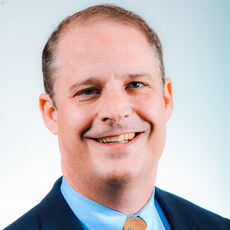
Regulators approve Efficiency Maine’s growth plan, but federal policies cloud future
The Maine Public Utilities Commission approved Efficiency Maine's three-year plan to continue programs to improve the efficiency of energy use and reduce greenhouse gases.
But some programs could see hits from changes in federal funding or policies.
“The chief impact of federal action that is already happening is the delay in our expansion of our loan program for energy upgrades to homes and businesses,” Michael Stoddard, executive director of Efficiency Maine, told Mainebiz. “We expect to hear soon whether the funds will be unfrozen.”

He continued, “Longer term, we will have to see what happens from any changes to the tariffs or the tax code.”
Core programs
The plan spans the period from July 1, 2025, through June 30, 2028.
It continues core programs for homeowners and businesses that include financial incentives for energy-saving technology such as heat pumps, along with consumer information, technical support and links to contractors.
The plan forecasts that Efficiency Maine programs will result in 38,000 homes heated entirely with heat pumps (including 6,500 low-income homes); 9,900 homes weatherized, with 137 megawatts of summer peak grid-load reductions by 2028.
A typical Maine home heated entirely with heat pumps will save more than $600 per year on their heating bill, according to a news release.
Other elements of the plan include:
- Energy upgrades for large facilities and manufacturers
- Advanced heating and cooling systems for nonresidential buildings, such as offices, hotels, schools, assisted living facilities and agricultural facilities
- High-efficiency water heaters to be discounted at distributors and retail stores
- Continuing plans to support the development of electric vehicle charging infrastructure throughout Maine and to help businesses and low-income customers take advantage of EVs.
The plan forecasts that the programs will result in more efficient use of the grid, resulting from electrification of heating and transportation will suppress electricity rates by more than $490 million over the long term.
Stoddard said the plan is expected to continue growth of the market, which has provided a source of economic activity for hundreds of small businesses and jobs for their employees.
Federal overview
Stoddard said that core rebates that Efficiency Maine offers for heat pumps and weatherization in homes and businesses are principally funded using sources of revenue other than federal funding.
The agency offers several smaller, discrete programs that use federal funding and have been operating this year. The plan is to continue them next year.
“Presently, those funds remain available to us and have not been interrupted,” he said.
However, one initiative that might be affected by recent federal actions is the agency’s plan to expand the availability of loans for homes and businesses installing energy upgrades.
“We are currently offering loans for a short-list of home and business energy upgrades, but have made plans to offer them to a broader array of customers, including larger businesses and institutions, and for a wider scope of upgrades such as emergency back-up batteries using recently granted federal funds,” Stoddard said. “The federal government has temporarily frozen the funds we were intending to use to capitalize these loans, and we are awaiting a court ruling to determine if the funds will become accessible.”
He continued, “Also, if federal tariffs result in higher prices for energy appliances, or if the federal government changes available tax credits, Maine consumers may have to pay more to make the improvements they have planned for their homes and businesses.”













0 Comments